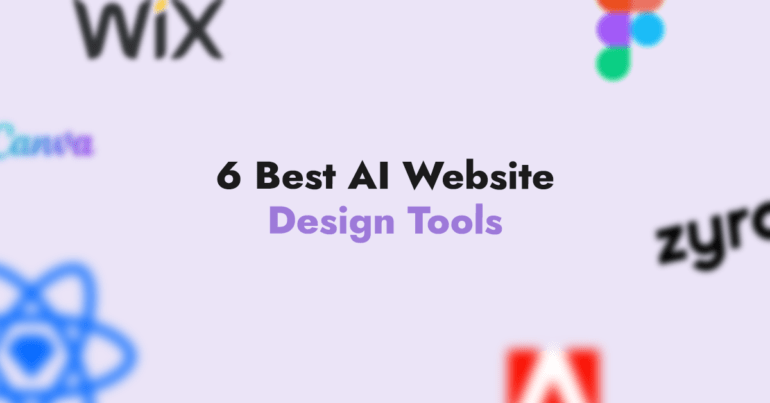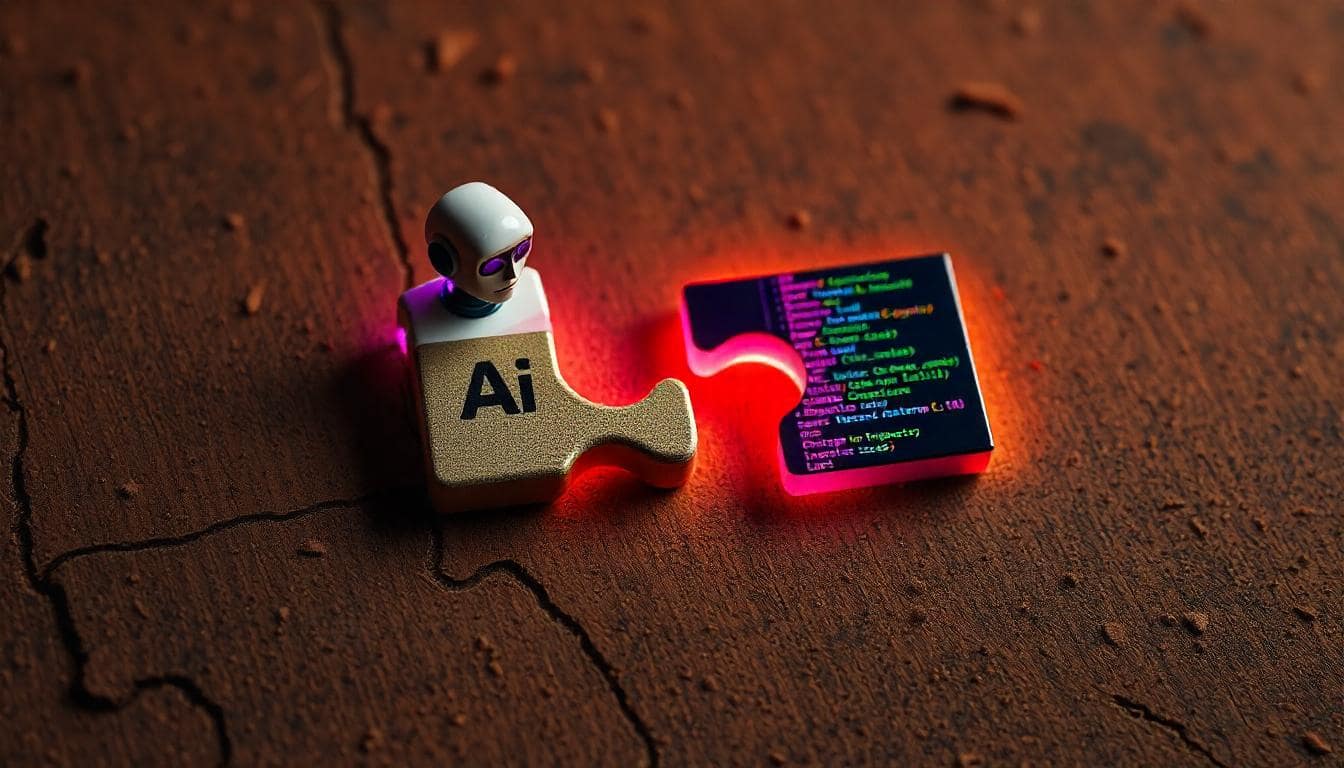Artificial Intelligence (AI) is progressively seeping into many aspects of our lives, with its impact being palpably felt in the realm of web design. As developers and designers embrace the power of AI web design, they are unravelling a world of possibilities that AI offers.
AI is changing the dynamics of web development, converting a previously complex, time-consuming task into a much more straightforward, efficient process. AI website builders are swiftly becoming indispensable tools in the web development sphere, demystifying website design. This evolution makes website design more accessible to a broader audience, irrespective of their programming skills or technical background. As a testament to AI’s ever-growing influence, the global AI market is expected to reach a remarkable $126 billion by 2025.
The advent of AI in web design is not merely about automation or efficiency; it’s about creating an ecosystem where technology and human creativity coalesce to produce more intuitive, user-friendly, and aesthetically pleasing web experiences. This intersection of technology and design is where the true potential of AI web design tools is realized.
Transformative Benefits of AI Website Design Tools
AI website design tools have emerged as game-changers in the sphere of web design, offering a suite of benefits that make the process more efficient, creative, and user-centric. Here’s an in-depth look at these transformative benefits:
- Enhanced Efficiency: One of the most prominent advantages of AI web design tools is the significant improvement in efficiency. These tools handle numerous mundane and repetitive tasks that once consumed substantial chunks of a designer’s time. By automating these tasks, AI tools allow designers to focus their energy on more crucial aspects of the website, effectively reducing the time and effort needed to create a website. This translates into improved productivity and faster project delivery times.
- Creativity Augmentation: By offloading the tedious and routine tasks, AI tools free up designers’ mental bandwidth, allowing them to dedicate more time to the creative aspects of web design. These tools also offer smart suggestions and insights, sparking new ideas and encouraging designers to innovate. This not only enhances the aesthetic appeal of websites but also makes them more engaging and user-friendly.
- Data-Driven Decision Making: AI tools are equipped with powerful algorithms capable of processing and analyzing vast amounts of data. This ability to crunch big data and provide actionable insights is a key strength of AI in web design. Designers can leverage these insights to make informed, data-driven decisions that significantly enhance the website’s user experience and performance.
- Personalization at Scale: AI’s ability to analyze user behaviour and patterns empowers it to create highly personalized website experiences. With AI, each visitor can enjoy a unique, tailored experience, which substantially improves user satisfaction and engagement rates. This level of personalization, which would be incredibly labour-intensive without AI, can be achieved at scale, catering to vast audiences.
- Accessibility: AI tools simplify the web design process, making it accessible to a broader audience. Even those with little to no coding skills can create professional-looking websites using AI website builders. These tools democratize web design, promoting inclusivity and diversity in web design.
- Collaborative Design: Many AI design tools offer collaborative features that allow designers to work together in real-time, irrespective of their geographical location. This fosters a more cohesive design process, encourages the exchange of ideas, and leads to a more refined and well-rounded final product.

6 Best AI Website Design Tools
Here are six of the best AI web design tools that are shaping the future of web design:
- Figma: Figma’s AI-empowered platform fosters real-time collaboration among designers, creating an environment for instant feedback and iteration. Its smart features expedite the creation of dynamic, responsive designs. This increases efficiency, allowing web designers to meet their project timelines without compromising on the quality of their designs.
- Adobe Sensei: Adobe’s AI platform, Adobe Sensei, streamlines tasks across Adobe’s creative suite. It uses AI to analyze images, identify patterns, and suggest design elements, effectively acting as a virtual assistant to web designers. This results in a refined design process, more efficient workflows, and enhanced final products, allowing designers to focus on their creative vision.
- Wix ADI: Wix’s Artificial Design Intelligence (ADI) uses responses from users to create unique and personalized websites swiftly. This AI-generated website tool takes the legwork out of the initial design process for web designers, providing a customizable base that they can refine based on the brand’s aesthetic.
- Sketch2React: This tool stands out by using AI to convert Sketch designs into usable React code. This bridging of the design-to-development gap streamlines the entire web creation process, freeing designers from the often complex and time-consuming coding phase.
- Zyro: Zyro, an AI-powered website builder, offers features like the AI Heatmap, which predicts visitor behaviour, and the AI Writer, which generates engaging website copy. These tools allow designers to make data-driven decisions and create compelling content, enhancing user experience and engagement.
- Canva: Canva uses AI to provide smart design suggestions. By offering templates, colours, and layout recommendations tailored to user preferences, Canva helps designers to quickly create visually appealing and effective websites. This streamlines the design process and allows web designers to create professional-looking websites, even without extensive design experience.
How to Use AI to Make a Website
Creating a website using AI tools is a straightforward process that involves the following steps:
Step 1: Choose a website builder that aligns best with your design needs and objectives.
Step 2: Provide the AI with your design preferences and the purpose of your website. This can be achieved through a questionnaire or direct input.
Step 3: The AI will then use the information provided to generate a design layout. This AI-generated website is a starting point that can be refined and tweaked.
Step 4: Review the AI-created design and make necessary adjustments. Most AI tools offer intuitive and user-friendly interfaces for making these modifications.
Step 5: Once you’re satisfied with the design, you can publish the website directly from the AI tool.
Key Factors to Consider When Selecting an AI Tool for Web Design
Choosing an AI tool to create a website can be a game-changer for the web design process, and understanding the key factors in making this decision is essential. The right AI tool should be user-friendly, ensuring that anyone can leverage AI to create websites with ease. Customization and flexibility should also be inherent, allowing users to tweak the AI-generated designs to align with their unique needs.
To ensure effective collaboration during the design process, the AI tool should have built-in features that promote seamless communication among team members. Smooth integration with other software is crucial for a streamlined workflow. Additionally, the tool should provide data-driven insights that guide design decisions, thereby improving the website’s overall effectiveness.
Lastly, the cost of the tool should be justifiable by the features offered, ensuring good value for your investment. By considering these factors, you can harness the power of AI to create a more efficient and high-quality web design process.
The Future of AI in Web Design
The transformative impact of AI on web design is monumental. AI tools enhance creativity, efficiency, and data-driven decision-making, shaping the future of web design. However, it’s important to acknowledge that web design is a complex process encompassing various elements. While AI simplifies certain aspects and provides personalization and enhanced user engagement, web design services remain vital and necessary. The expertise and creativity of professionals in the field bring a unique understanding of user experience and ensure the creation of visually appealing and effective websites.
AI streamlines both website and mobile app creation, empowering individuals to leverage its capabilities easily. It enables personalized, interactive, and intuitive user experiences across digital platforms. In mobile app UX design, AI helps optimize user journeys, predict user behavior, and enhance engagement through adaptive interfaces. As AI continues to advance, its role in both web and app design will expand, driving innovation and continuous improvement.
Explore more expert-backed insights here: Startup Mobile App UX Design: A GoodFirms Survey.
The synergy between AI tools and the human touch of designers is crucial. It combines the efficiency and insights of AI with the creativity and expertise of designers, resulting in visually appealing and user-friendly websites that cater to the needs of businesses and individuals alike.




